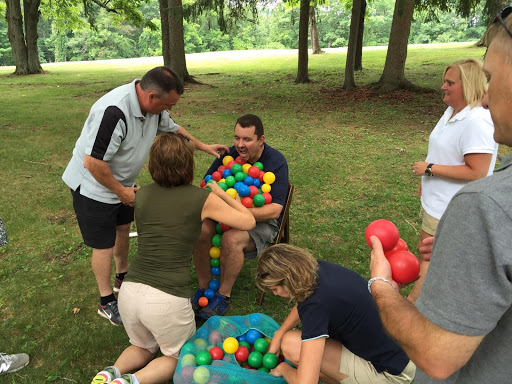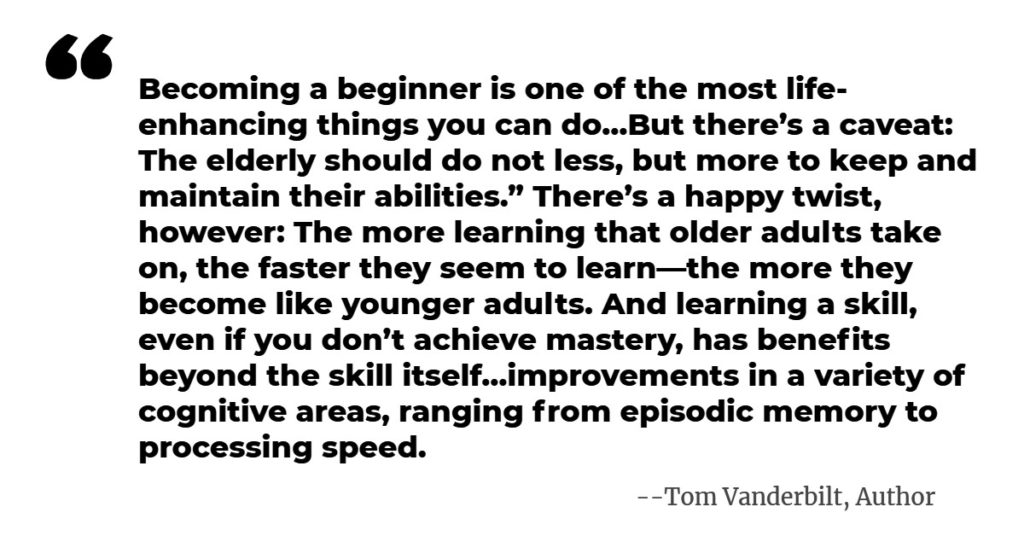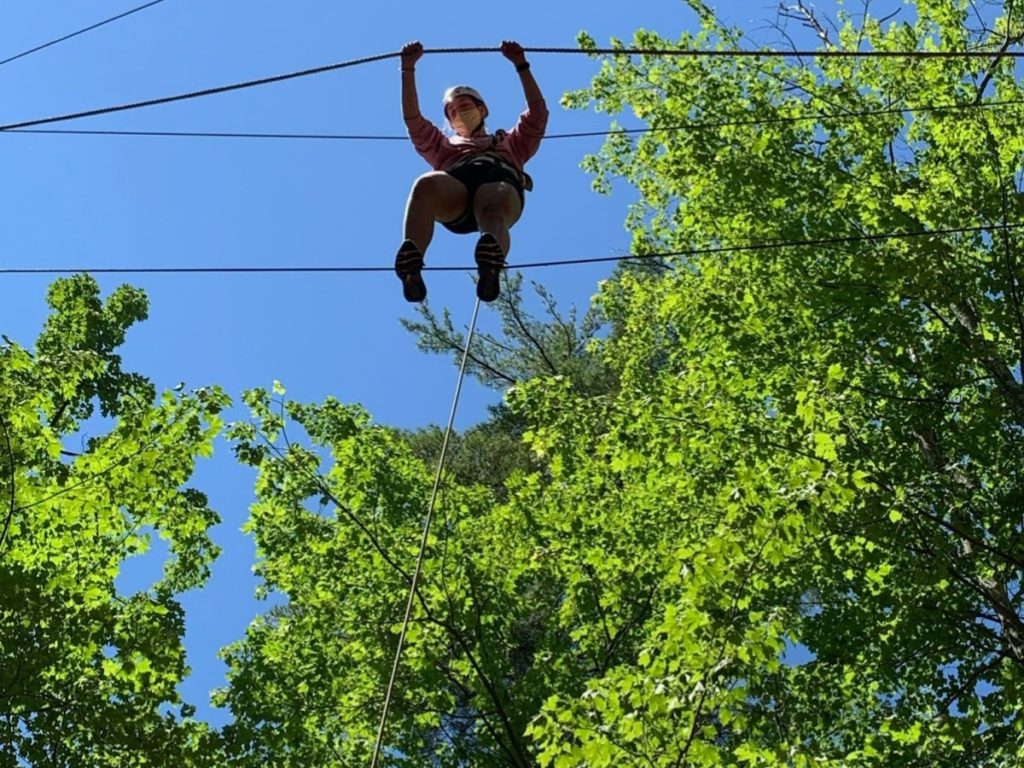Guess What? Experiential Learning is Lifelong Learning!
Is it time to make a mid-year resolution, and commit to learning something new? We’ve all been faced with new things to learn during this past year. From mask-wearing and physical distancing to Zoom meetings. Looking back over this time of self-quarantining and drastically limited travel and socializing is wearying. The hope that it will be over soon is the light at the end of a very long tunnel. As you transition back to in-person work and reconnecting with others, we have a proposition for you.
Recently, Tom Vanderbilt published a book Beginners: The Joy and Transformative Power of Lifelong Learning, and then wrote a complimentary article in the Wall Street Journal “For New Year’s Resolutions, Never Think You’re Too Old to Become a Beginner.” Vanderbilt’s reflection on this time is not steeped in frustration and fear, but rather charged with a very different perspective: the spirit of the novice pursuing a host of new ideas and activities. In our field of Experiential Learning, coming face-to-face with the spirit of the novice is key to unlocking the transformative power of our work. Are you ready to be a novice at something brand new?
Learning to Juggle New Things
Vanderbilt notes that the forced isolation we have all experienced has led many to learn new things, from online language and art classes to juggling. Juggling is one of those activities that causes remarkable alterations in the brain. As Vanderbilt notes, “…this ‘activation-dependent structural plasticity,’ as it’s called, pops up in as little as seven days. Juggling changes not only gray matter, the brain’s processing centers, but also white matter, the networked connections that bind it all together.” Coincidentally, many of the games and initiatives we carry in our program bags as facilitators and educators are similar to juggling. Beyond the hand-eye coordination required of tossing objects in the air, like a rubber chicken or fluffy fleece balls (some of our go-to props), there is a social component to learning something new. The gray matter of the brain processes another layer of learning: About the self, about others and the collective.
This change in the way the brain works is familiar to High 5’s facilitators/educators. It is one of the enabling aspects of the work they do in empowering people to see themselves and others in a new, more constructive light by helping them to unlearn unconstructive—even destructive—patterns of thinking, perception and interaction. Vanderbilt asserts, “Even as we commit to new activities, we struggle to shake off the stasis of familiar routines, especially if we are older.”

A Winning Formula: Willingness + Participation = Openness to NEW EXPERIENCES
The means to this end is by leaving your established comfort zone (see more about Comfort Zone Activity), that place where interactions are known and predictable and leave no room for growth. And the requirement for attaining these means? Just a willingness to participate and an openness to new experiences. Over and over again, in team building and leadership training workshops and challenge course-based adventure learning experiences, High 5 educators have found that the key to successfully unlearning old patterns of thinking and behaving, and learning new ones that help us to become better colleagues and friends—and just plain better people—is found in a willingness to participate and an openness to new experiences. This mindset is corroborated by Vanderbilt’s assertion that “There’s also a feeling of growth in meeting…people who are like-minded in their desire to learn new things… In psychology, this is called ‘openness to experience.”
Opening the Door to Self-Discovery
Openness to new experiences is one of what are sometimes described as the “Big Five” personality traits, which also include conscientiousness, extraversion, agreeableness, and neuroticism (OCEAN). These traits in various degrees of emphasis combine to define us, shaping our personalities and what others see as our characters. And lest you think that openness to new experience could get you into all sorts of uncomfortable situations, consider this: that same openness to experience has also been increasingly linked to longevity, making it one of the more desirable personality traits to cultivate. Though not yet empirically proven, psychological theory suggests this openness corresponds to flexibility—both cognitive and behavioral—that helps us in addressing life’s challenges, especially in our later years.

Benefits of The Beginner Mind
Boosting your brain is hardly the sole reason to become a beginner. There’s also the feeling of growth, the sense that you’ve just become someone new and just maybe someone better. As Vanderbilt explains, “Learning is not linear, rather it happens by fits and starts. And we seem to learn best when we are functioning at or near the limits of our skill level. So keep this in mind: Always be at the edge of what you can’t currently do. If it feels easy, you’re not learning…Resolve instead simply to try to learn new skills, let the process of learning itself be your goal.”
When we open ourselves and grow through new experiences, we see more of ourselves and others. For example, when first encountering the high elements on High 5’s challenge course, it’s normal for people to think “No Way! It’s a long way up in those trees and I have to get there, then do what…?”! In situations like this, it’s normal for people to turn to their teammates for physical help and maybe some moral support. Those who normally lead may find themselves following for the first time in their shared experience. This can provide insight into previously unknown strengths and resourcefulness, even courage. Such a shared experience helps shape a new relationship, which can lead to a stronger team back at the office, where respect for individual strengths can lead to more collaborative and innovative decision-making processes.

So why not give it a try? Commit to stepping outside your comfort zone and try something new. It might be a bit challenging, but the experience could open up new and exciting opportunities! Click here to discover what other teams have done in the pursuit of lifelong learning with the help of High 5. We guess the next step is up to you: What’s your next beginner move in lifelong learning?